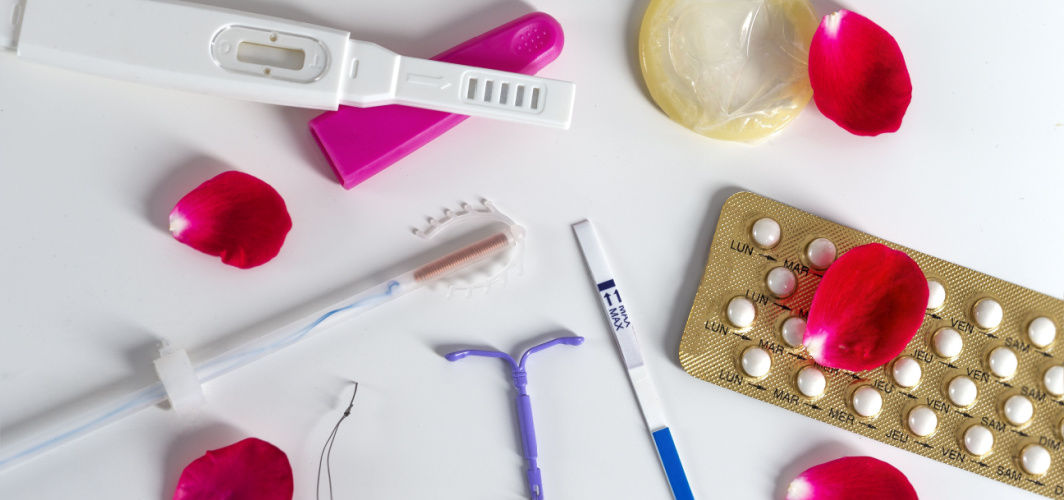Sexual Wellness
Common Symptoms Of HIV: What All You Need To Know!
5 min read
By Apollo 24|7, Published on - 09 March 2023, Updated on - 07 August 2024
Share this article
0
0 like

Despite significant progress in HIV (human immunodeficiency virus) prevention and treatment, the virus remains a significant public health concern owing to the absence of a permanent cure. According to the World Health Organisation (WHO), HIV affects approximately 38 million people worldwide. However, with early detection and prompt treatment, people diagnosed with HIV can lead long and healthy lives.
In this blog, we will be discussing the most common symptoms of HIV that will help you stay informed and obtain medical intervention at the right time. But before we jump into the symptoms, let's understand what HIV is.

What Is HIV?
HIV is a virus that attacks the body's immune system. Specifically, it targets CD4 cells which are a type of white blood cell that play a critical role in fighting off infections. When HIV infects these cells, it gradually weakens the immune system over time, leaving the body vulnerable to other infections and illnesses. This virus can eventually lead to Acquired Immunodeficiency Syndrome (AIDS).
Early Signs of HIV Infection
Within a few weeks of contracting HIV, some people may experience flu-like symptoms such as:
- fever
- headache
- fatigue
- rashes
- swollen glands or lymph nodes
- diarrhoea
- weight loss
- cough
- night sweats
- oral yeast infection
These symptoms can last from a few days to a few weeks and are a sign that the body is fighting off a virus. It's important to note that not everyone with HIV will experience these early symptoms and some people may mistake them for a mild illness or seasonal flu.
Symptoms of HIV in Men
Men with HIV may experience a range of symptoms including fever, sore throat, swollen glands, rashes, fatigue and muscle aches. These symptoms are similar to those experienced in the early stages of the virus but these can be more severe and long-lasting. Additionally, men with HIV may experience erectile dysfunction and testicular pain or swelling.
Symptoms of HIV in Women
Women with HIV may experience symptoms similar to those in men such as a fever, sore throat, swollen glands, rashes, fatigue and muscle aches. However, women may also experience additional symptoms such as vaginal yeast infections, irregular periods and pelvic inflammatory disease.
Signs of Advanced HIV Infection
As HIV progresses, it can cause more serious symptoms and illnesses. Some common signs of advanced HIV infection include rapid weight loss, chronic diarrhoea, night sweats and recurring fever. People with advanced HIV may also be more susceptible to other infections such as tuberculosis and pneumonia. They may experience skin rashes, mouth sores and neurological problems.
Transmission of HIV
HIV is primarily transmitted through blood, semen, vaginal fluids and breast milk. The most common routes of transmission are unprotected sexual contact, sharing needles or other injection equipment and from mother to child during pregnancy, childbirth or breastfeeding. It's important to note that HIV cannot be transmitted through casual contact such as hugging or sharing utensils.
HIV Prevention and Treatment
While there is currently no cure for HIV, there are effective treatments available that can help people with HIV live long and healthy lives. Early diagnosis and treatment are key to managing the virus and preventing the progression of AIDS. Treatment typically involves a combination of antiretroviral therapy (ART) and medication to manage related symptoms and illnesses.
In addition to treatment, there are several steps an individual can take to prevent the transmission of HIV including:
- practising safe sex
- avoiding sharing needles or blades and razors
- getting tested regularly for HIV and other sexually transmitted infections
When to See a Doctor?
If you have any reason to suspect that you may have been exposed to HIV, it is important to see a doctor as soon as possible. This may include experiencing symptoms of HIV or engaging in behaviours that put you at risk for HIV transmission such as unprotected sex or sharing needles. Additionally, it is recommended that everyone gets tested for HIV at least once in their lifetime, regardless of risk factors.
To summarise, understanding the most common symptoms of HIV is crucial for early detection and timely treatment. While these symptoms can be similar to those of other illnesses, it is important to seek medical attention if you experience any of them, especially if you believe you have been exposed to the virus.
It is important to note that not everyone with HIV experiences symptoms. The only way to get diagnosed is to get tested. HIV is a manageable condition and with early diagnosis and treatment, individuals living with HIV can live long healthy lives. So don't hesitate to get tested and seek medical care if you suspect you may have been exposed to HIV.
Consult Apollo's Infectious Disease Specialist
FAQs
1. What is the difference between HIV and AIDS?
HIV is the virus that causes AIDS (Acquired Immunodeficiency Syndrome). AIDS is the most advanced stage of HIV infection, characterised by a severely weakened immune system and the occurrence of opportunistic infections and cancers.
2. Can HIV spread through saliva?
HIV cannot spread through saliva, as the virus cannot survive outside the body.
3. Can I get HIV from a mosquito bite?
No, HIV cannot be spread through mosquito bites, as the virus cannot survive in the mosquito's digestive system.
4. How long does it take for HIV to show up in a blood test?
It can take anywhere from 2 weeks to 3 months for HIV antibodies to appear in the blood. This is why it is recommended to get tested again after 3 months if the first test is negative but you still suspect infection.
5. Is it safe to have a baby if you have HIV?
With proper medical care and treatment, it is possible for a person diagnosed with HIV to have a safe pregnancy and deliver a healthy baby while reducing the risk of HIV transmission.
Consult Apollo's Infectious Disease Specialist
Medically reviewed by Dr Sonia Bhatt.
Sexual Wellness
Consult Top Infectious Disease specialists
View AllLeave Comment
Recommended for you

Sexual Wellness
If Not Condoms What Can Be Used As Protection During Sex?
Even if you are bothered by the rubbery feeling of condoms during sex or have an allergy to latex, you shouldn't shy away from protection. In this article, find out more about the other methods of protection other than condoms.

Sexual Wellness
Is It Safe to Have Sex During Pregnancy?
As new parents-to-be, couples generally refrain from sex during pregnancy basis the safety of their unborn child. Read on as we discuss this in detail, including when and when not to indulge, some benefits and cautions to keep in mind.

Sexual Wellness
5 Things You Should Start Practising To Improve Your Sex Life
It’s common for couples to get stuck in a sexual rut, not quite being able to enjoy the passionate sex life they once had. There can be a number of reasons behind dry spells in relationships. This blog offers some effective tips for improving your sex life.
Subscribe
Sign up for our free Health Library Daily Newsletter
Get doctor-approved health tips, news, and more.
Recommended for you

Sexual Wellness
If Not Condoms What Can Be Used As Protection During Sex?
Even if you are bothered by the rubbery feeling of condoms during sex or have an allergy to latex, you shouldn't shy away from protection. In this article, find out more about the other methods of protection other than condoms.

Sexual Wellness
Is It Safe to Have Sex During Pregnancy?
As new parents-to-be, couples generally refrain from sex during pregnancy basis the safety of their unborn child. Read on as we discuss this in detail, including when and when not to indulge, some benefits and cautions to keep in mind.

Sexual Wellness
5 Things You Should Start Practising To Improve Your Sex Life
It’s common for couples to get stuck in a sexual rut, not quite being able to enjoy the passionate sex life they once had. There can be a number of reasons behind dry spells in relationships. This blog offers some effective tips for improving your sex life.



